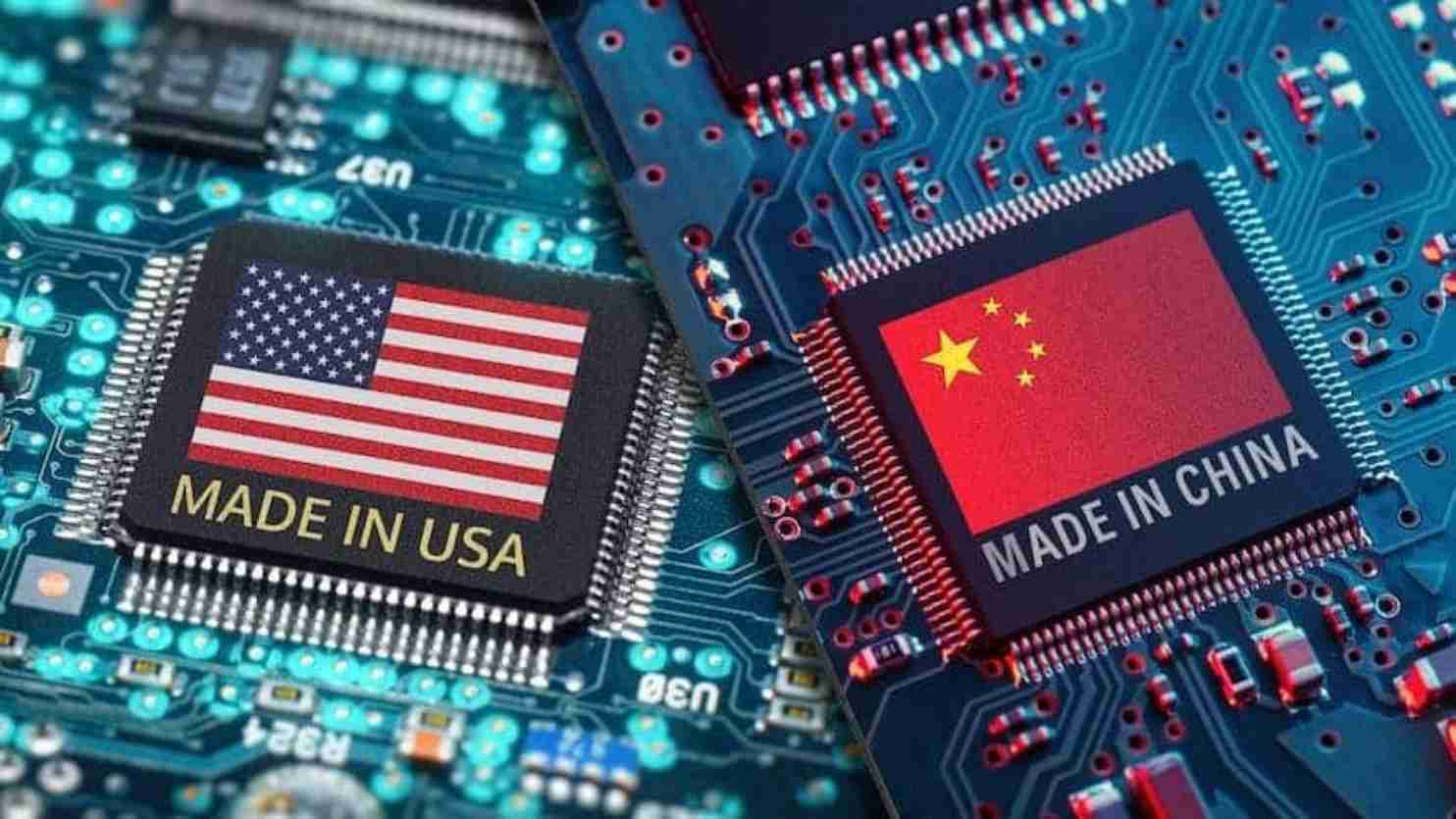AI is now the heartbeat of tech, driving every new gadget and software upgrade with unprecedented capabilities.
The surge has led to a massive demand for semiconductor chips, the essential building blocks for everything digital—from your smartphone and camera to your refrigerator and LED lights.
Some of these chips, like Apple’s powerhouse M4 chip, are redefining what technology can do. Capable of handling a staggering 38 trillion operations per second, the M4 enables features like Live Captions and Visual Look Up on the iPad Pro and is 60 times faster than Apple’s first Neural Engine.
Given the power and influence of these chips, it’s no surprise that countries are fiercely competing for control over this vital market.
U.S. Pushes for Chip Production Dominance
The United States is doubling down on domestic chip production. Through the CHIPS Act, the government announced in April it would award up to $6.4 billion in grants to South Korea’s Samsung to expand chip manufacturing in Texas.
The U.S. has also pressured allies like the Netherlands, Japan, and South Korea to limit their chip exports to China. In response, these countries have enacted their own restrictions.
Last June, the Dutch government announced plans to restrict semiconductor technology exports, citing national security, while Germany recently stopped shipments of older lithography machines to China. Japan imposed its own export controls on advanced microchip technology last year.
China’s Semiconductor Game Plan
China isn’t just a major producer of semiconductors—it’s one of the world’s largest consumers. In 2020 alone, China purchased over half the global chip supply, valued at $240 billion.
Major players like Qualcomm, NVIDIA, and ASML Holding NV rely heavily on the Chinese market for significant portions of their revenue.
In response to U.S. restrictions, China has accelerated efforts to achieve self-sufficiency in chip manufacturing. The Chinese government is preparing a $143 billion support package for its semiconductor sector, aiming to reduce reliance on foreign suppliers.
Reuters reported that two Chinese chipmakers recently started producing high-bandwidth memory (HBM) semiconductors, essential for AI chipsets.
Tech giant Huawei has also made strides in self-sufficiency, with its latest high-end phone featuring more domestically produced components like advanced memory storage and processing chips.
Chinese universities and research institutes have even secured advanced AI chips from Nvidia through resellers, demonstrating China’s commitment to staying competitive despite U.S. pressures.
U.S. Tech Giants Torn Between Policy and Profits
U.S. tech companies are facing a difficult choice as tensions rise between Washington and Beijing over semiconductor trade.
Despite political pressures and government incentives to pull back from China, companies like Qualcomm, ASML, and Apple are reluctant to end their profitable partnerships with Chinese firms.
The longstanding business relationships these companies have built with China make U.S. chip sanctions a tough sell for tech giants who rely heavily on the Chinese market.
In March, amid escalating political tension, Intel moved forward with a high-stakes deal, selling hundreds of millions of dollars’ worth of chips to Huawei, underscoring the complex balancing act these corporations face.
Meanwhile, China’s commerce ministry has been actively engaging with ASML to maintain strong trade ties, reinforcing its role as a reliable business partner.
Major players like Huawei, Nokia, and Ericsson have also been tapped to develop China’s 5G networks, with Samsung and Qualcomm working to strengthen their foothold in the lucrative market.
Shifting Attitudes on Chip Production
As pressure mounts, some U.S. tech companies are beginning to rethink their reliance on semiconductor production concentrated in Asia.
The situation has raised red flags for industry heavyweights like Intel, which have voiced concerns about the vulnerability of sourcing chips from a single region.
In response, Intel has taken significant steps to diversify its supply chain, starting with an agreement in 2022 to acquire land in Magdeburg, Germany, for a new semiconductor factory.
The stakes have never been higher, and as the chip tug-of-war continues, these companies are bracing for a future where every decision could redefine the balance of power in tech.







